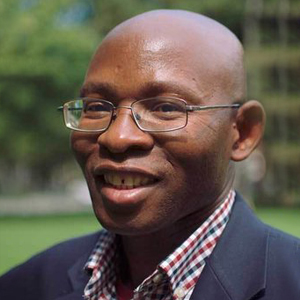WIPO-IGC Decisions Risk Legitimacy Deficit, Warns an Indigenous Forum Panel
Today, the WIPO-IGC commenced the last of its meetings for 2016 under the 2016-2017 biennium agenda. The meeting is being held pursuant to the expert committee’s mandate to develop text-based instruments for the protection of genetic resources, traditional knowledge, and traditional cultural expressions. The sessions, which run from November 28 – December 2, 2016, were preceded by targeted seminars on November 24-25 that featured a diverse group of WIPO-selected expert panels, which included an ABS Canada team member. These expert panels offered practical insights to assist delegates as they attempt to narrow the gaps in the existing IGC text on Traditional Knowledge.
The formal opening of the negotiations in Geneva began this morning with welcoming remarks by Mr. Francis Gury, WIPO Director General, and Australia’s Mr. Ian Goss, the WIPO-IGC president of the 2016-2017 Biennium. The President noted that since 2014, WIPO has not been able to finance any indigenous representation to the IGC. He warned that it is critical that states take steps to respond to the urgent need to replenish the Voluntary Fund. It should be recalled that an earlier Swiss proposal to have indigenous representation at IGC funded from the WIPO budget was blocked by the United States. This situation has left indigenous representatives’ attendance and participation entirely at the mercy or generosity of those states that contribute to the Voluntary Fund.
In their statement to the IGC, the Indigenous Forum insisted upon the full and effective participation of Indigenous peoples at the IGC, without which the legitimacy of the committee’s decisions would remain questionable:
“After 16 years of discussions and negotiations, the majority of the world’s approximately 370 million indigenous persons and over 10,000 Indigenous nations have very little understanding of what is being negotiated here. In addition to the outreach efforts of the Secretariat, member states must expand their domestic consultations and capacity building … we call upon members to promote the legitimacy of these proceedings in the eyes of the primary holders and owners of genetic resources, traditional knowledge and traditional cultural expressions by contributing to the Voluntary Fund to ensure full and effective participation.”
The Indigenous caucus panel members included delegates drawn from Brazil, Ecuador, Kenya and the United States. Panel members stressed Indigenous perspectives and expectations from the IGC in general and imminent negotiations in particular. Panel members urged the delegates to take into critical consideration some issues including the following:
- The need to remove the bracket around the term “peoples,” so that member states unequivocally recognize Indigenous peoples and “People” as they are defined in the United Nations Declaration on the Rights of Indigenous Peoples;
- Unequivocal recognition that Indigenous peoples are the core beneficiaries of TK without prejudice to other roles played by member states, especially as envisaged in the Nagoya Protocol on ABS;
- Preference for a rights-based approach to TK as an alternative to the differentiated or tiered approach currently being used (which recognizes sacred, secret, narrowly diffused and widely diffused TK). According to Preston Hardison of the Tulalip Tribes (Washington State), for members of his tribe all knowledge is sacred, and like other Indigenous peoples, their experiences of how best to protect their knowledge is more important than the so-called differentiated approach imposed externally by negotiators at the IGC;
- For many Indigenous peoples, knowledge is not necessarily the creative innovation of one individual, but a wholesome way of life, with spiritual and other elements that are not easily compartmentalized into intellectual property rights categories;
- For Indigenous peoples, knowledge means something beyond cosmetic considerations about appearances and dress. Rather, knowledge engages a whole range of issues that implicate identity, language, and tradition; knowledge is the “living breath of life;”
- Indigenous peoples are conscious of the economic value of TK and are not opposed to it. There is a need to build on benefit sharing frameworks under the Nagoya Protocol and for further integration of community rights, indigenous laws and customary protocols into the process; and
- Taking into consideration the transboundary nature of TK – as many Indigenous peoples live and practice their knowledge and culture across colonial boundaries in ways that are inclusive – Indigenous Peoples must be engaged at all levels with a pragmatic and responsible dispute settlement approach.
This session highlighted the real and present danger of losing Indigenous participation in future IGC sessions if there is no serious attempt to substantially replenish the Voluntary Fund.




